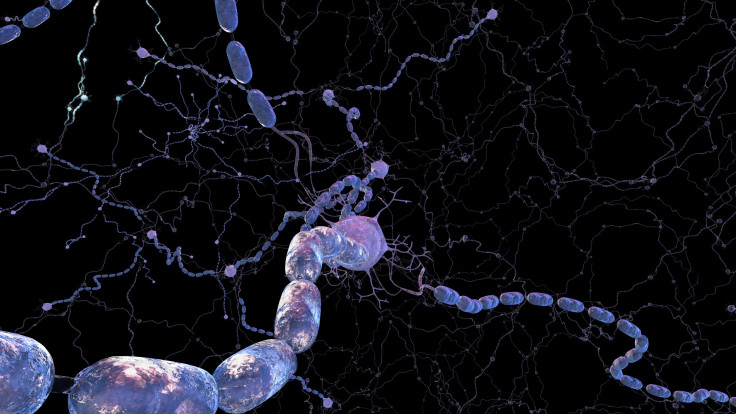Drugs Help Multiple Sclerosis Survivors Create New Stem Cells To Replace Lost Brain Cells

Multiple sclerosis is a devastating neurological disorder that, without a cure, leaves millions helplessly disabled to varying degrees of severity. But a new verge in medical discovery may have opened the doors of hope, thanks to a collaborative research team led by neuroscientists at Case Western Reserve University. The study, published in the journal Nature, stands to represent the most promising development in multiple sclerosis research to date.
"We know that there are stem cells throughout the adult nervous system that are capable of repairing the damage caused by multiple sclerosis, but until now, we had no way to direct them to act," the study’s coauthor Paul Tesa, professor at the Case Western Reserve School of Medicine, said in a press release. "Our approach was to find drugs that could catalyze the body's own stem cells to replace the cells lost in multiple sclerosis."
Researchers identified a pair of topical medications commonly used to treat athlete’s foot and eczema that are capable of stimulating new stem cell growth — ultimately reversing brain damage caused by progressive multiple sclerosis. More than 2.3 million people throughout the world have multiple sclerosis, according to the National Multiple Sclerosis Society. It is the most common chronic neurological disorder among young adults and is suspected to be an autoimmune disease because the body’s immune system attacks its own tissues.
As a consequence of the attack, the protective coating around nerve fibers in the brain and spinal cord are destroyed. Without myelin, the brain signals cannot transmit along nerves properly and over time a person loses their ability to walk, hold a cup, and even their vision. Current treatments work by slowing down the destruction, but this new therapy treatment works to create new myelin within the nervous system.
"To replace damaged cells, much of the stem cell field has focused on direct transplantation of stem cell-derived tissues for regenerative medicine, and that approach is likely to provide enormous benefit down the road," Tesar said. "But here we asked if we could find a faster and less invasive approach by using drugs to activate native stem cells already in the adult nervous system and direct them to form new myelin. Our ultimate goal was to enhance the body's ability to repair itself."
Not only will the approach change the way multiple sclerosis is treated, but also similar neurological disorders that involve myelin loss, such as cerebral palsy, age-related dementia, optic neuritis, and schizophrenia. Now that researchers know what works, the next step will be for them to understand exactly how the drugs' mechanisms act. Once determined, researchers will tweak and modify the drugs to increase their effectiveness in people.
"It was a striking reversal of disease severity in the mice," the study’s co-author Robert Miller, a neuroscientist at Case Western Reserve, said in a press release. "The drugs that we identified are able to enhance the regenerative capacity of stem cells in the adult nervous system. This truly represents a paradigm shift in how we think about restoring function to multiple sclerosis patients."
Discovering drugs that have the power to control how stem cells function is a "promising new era" for not only multiple sclerosis, but for the field of regenerative medicine in general, according to National Institutes of Health Director Dr. Christopher Austin. The exploration of novel drug therapies was a combined effort of "cutting-edge" stem cell and drug screening technologies, Austin added. The research team is excited for the breakthrough but doesn’t recommend people diagnosed with MS start treating themselves at home with athlete’s foot or eczema medications.
"We appreciate that some patients or their families feel they cannot wait for the development of specific approved medications," Tesar said, "but off-label use of the current forms of these drugs is more likely to increase other health concerns than alleviate multiple sclerosis symptoms. We are working tirelessly to ready a safe and effective drug for clinical use."
Source: Tesar PJ, Miller RH, Najm FJ, Madhavan M, Zaremba A, Shick E, and Karl RT, et al. Drug-based modulation of endogenous stem cells promotes functional remyelination in vivo. Nature. 2015.
Published by Medicaldaily.com



























